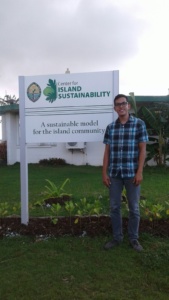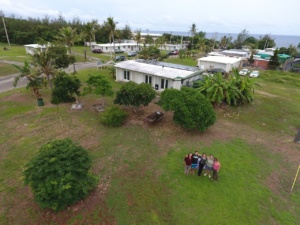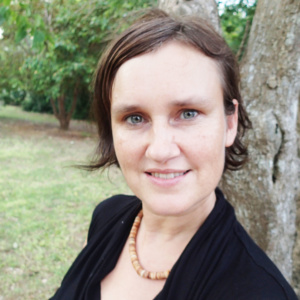The University of Guam’s Center for Island Sustainability is an islands-based model, providing an example of how the island community can be with a greener and self-sustaining future.
In recent years, electricity costs on Guam have been two to three times higher than in the U.S. mainland, and the island imports nearly all of fuel.

According to Phillip Cruz, the sustainability coordinator at CIS, all of the fuel used to make energy on Guam is imported.
“It’s not good that we rely on importing, because it’s super expensive, bad for the environment,” Cruz said. “What if one day the ships stop coming to Guam, where are we going to get our energy from?”
The Center for Island Sustainability is a federally funded program established in 2009, and initiated by UOG President Robert Underwood.
Its office is located in House 32 in the Dean’s circle at UOG.
Their mission statement is to “create and implement renewable, sustainable and appropriate technologies focusing on indigenous

energy alternatives and replicable research to meet the needs of island communities in the broader areas of Environment, Economy, Society, and Education.”
Much of the projects completed by the Center for Island Sustainability are funded by the grants they receive and collaborations they do with other environmental organizations on Guam.
A project CIS is currently working on is being funded by an energy auditing grant that they received from USDA. This allows CIS to work with small local businesses.
In an energy audit, CIS makes an assessment of their energy consumption and makes recommendations to make their businesses energy efficient.
Phillip Cruz, the sustainability coordinator at CIS, facilitates those grants and is actively present at most events dealing with CIS.
“I believe we’ve made some impact in the community with our outreach in education, teaching people about the importance of recycling, conserving energy, conserving water, and the importance of preserving our coral reefs,” Cruz said.
The Center for Island Sustainability has a group of volunteers called the UOG Green Army. Their goal is to make the UOG campus an ideal environment for sustainable living.
called the UOG Green Army. Their goal is to make the UOG campus an ideal environment for sustainable living.
Together they collaborate with Peggy Denney of the I*Recycle program, who sets up recycling bins at events like festivals, concerts and carnivals on Guam. The UOG Green Army goes out to those events and educates the community on how to properly recycle.
The Center of Island Sustainability also promotes growing and supporting locally grown produce. Guam imports over 95 percent of its food, which is not only expensive, but also relies on fossil fuels that contributes to climate change.
Else Demeulenaere, the associate director at CIS, is another advocate for sustainable living.
Demeulenaere not only helps maintain the garden at CIS, but was

also a part of the Guam Plant Extinction Prevention Program, a program that helps manage and repopulate Guam’s indigenous plants.
Demeulenaere wanted to share the importance of growing organically rather than using pesticides and fertilizer to grow plants, because when it rains the chemicals from pesticides runoff into the ocean, which causes damage to the coral reefs and to the aquifers.
“On Guam, we have natural resources and we need think about how we can use and protect this unique island,” Demeulenaere said.
Cruz and Demeulenaere want the people of Guam to mindful of their daily actions and their impact on the environment.
“Think of how things will affect our environment and how this will affect our future generations,” Cruz said.
If you are interested in joining the Green Army or if you want to take the first step into living a sustainable, energy saving life, contact Phillip Cruz at (671) 735-2918 or via email at phillipcruz@triton.uog.edu for more information.

